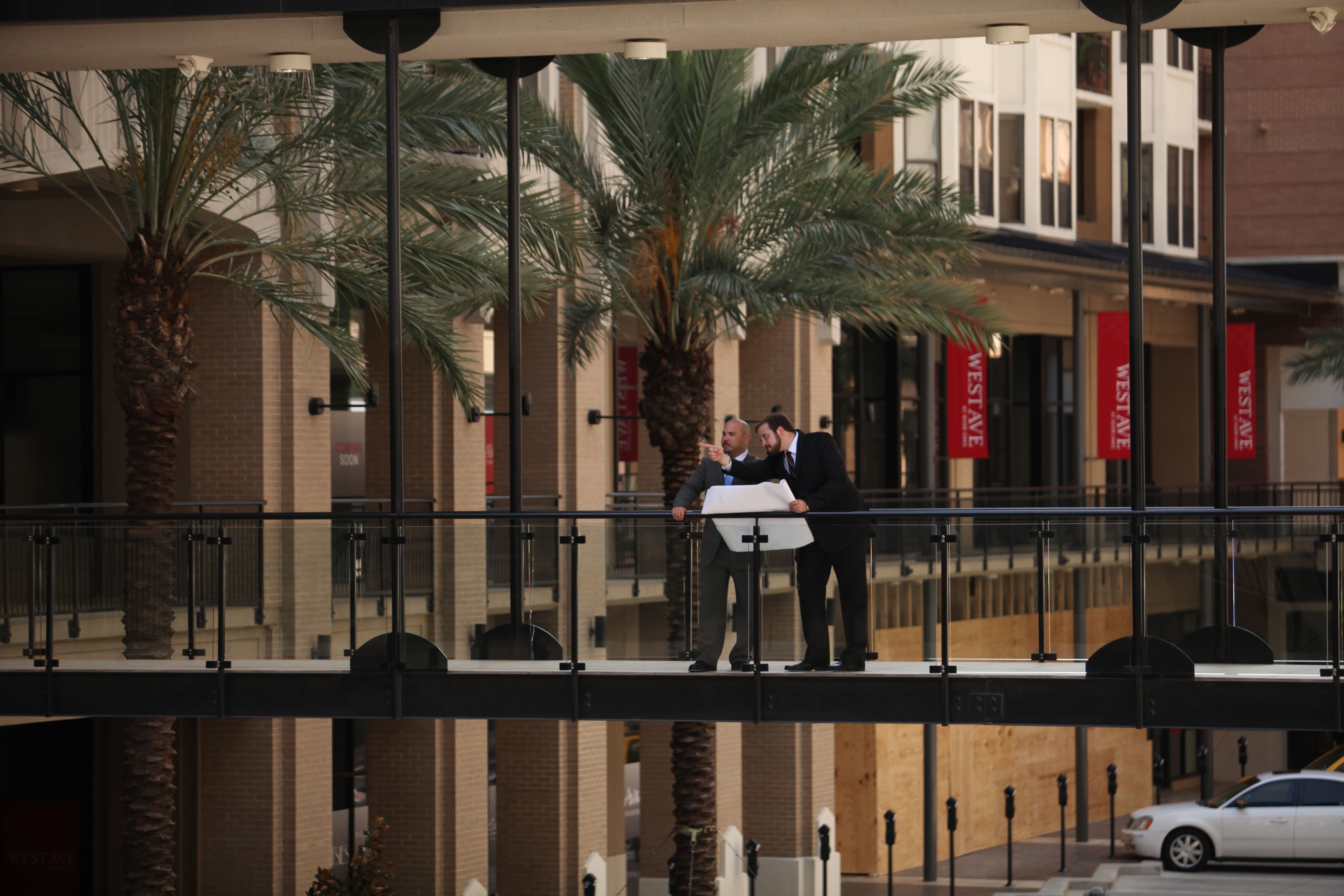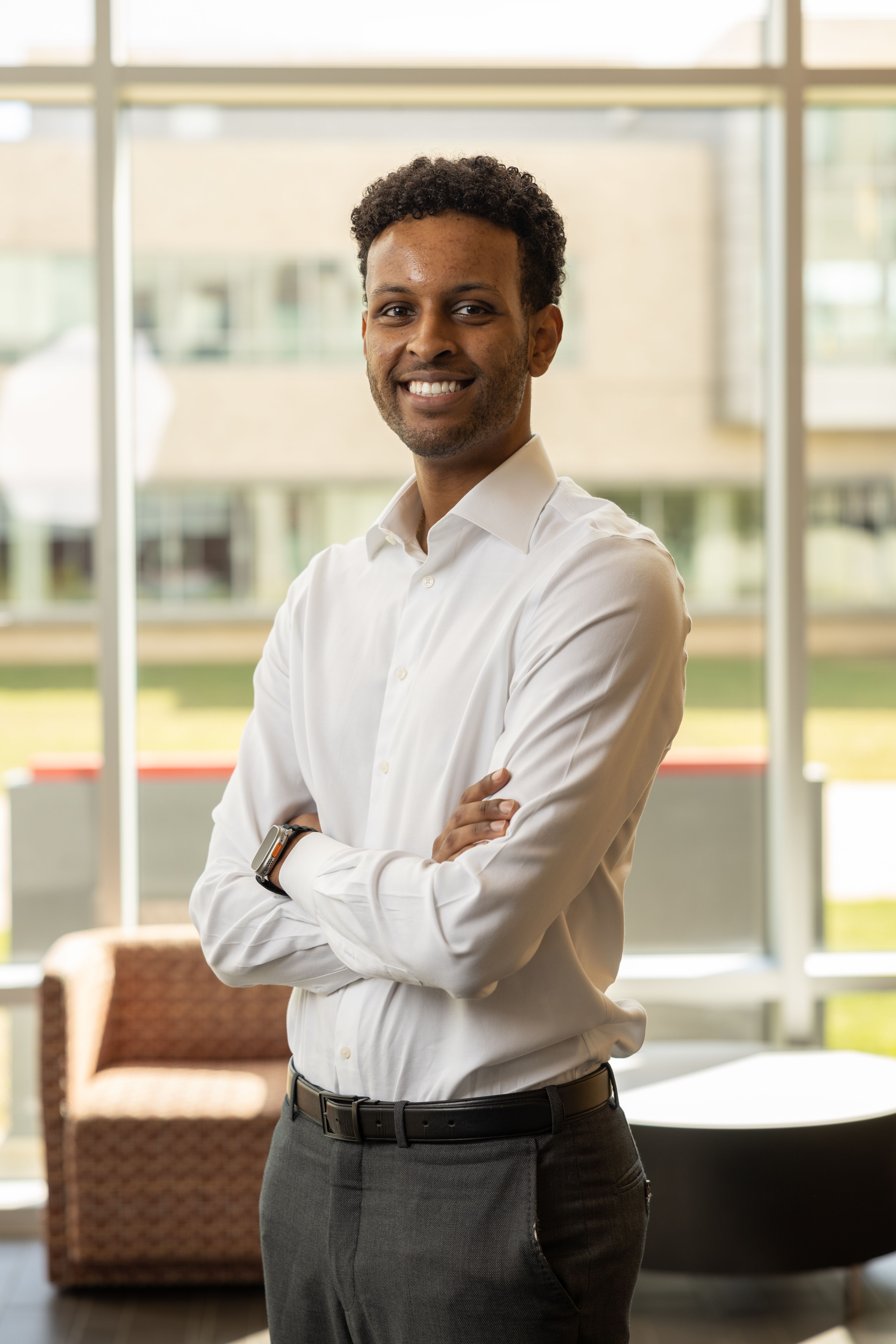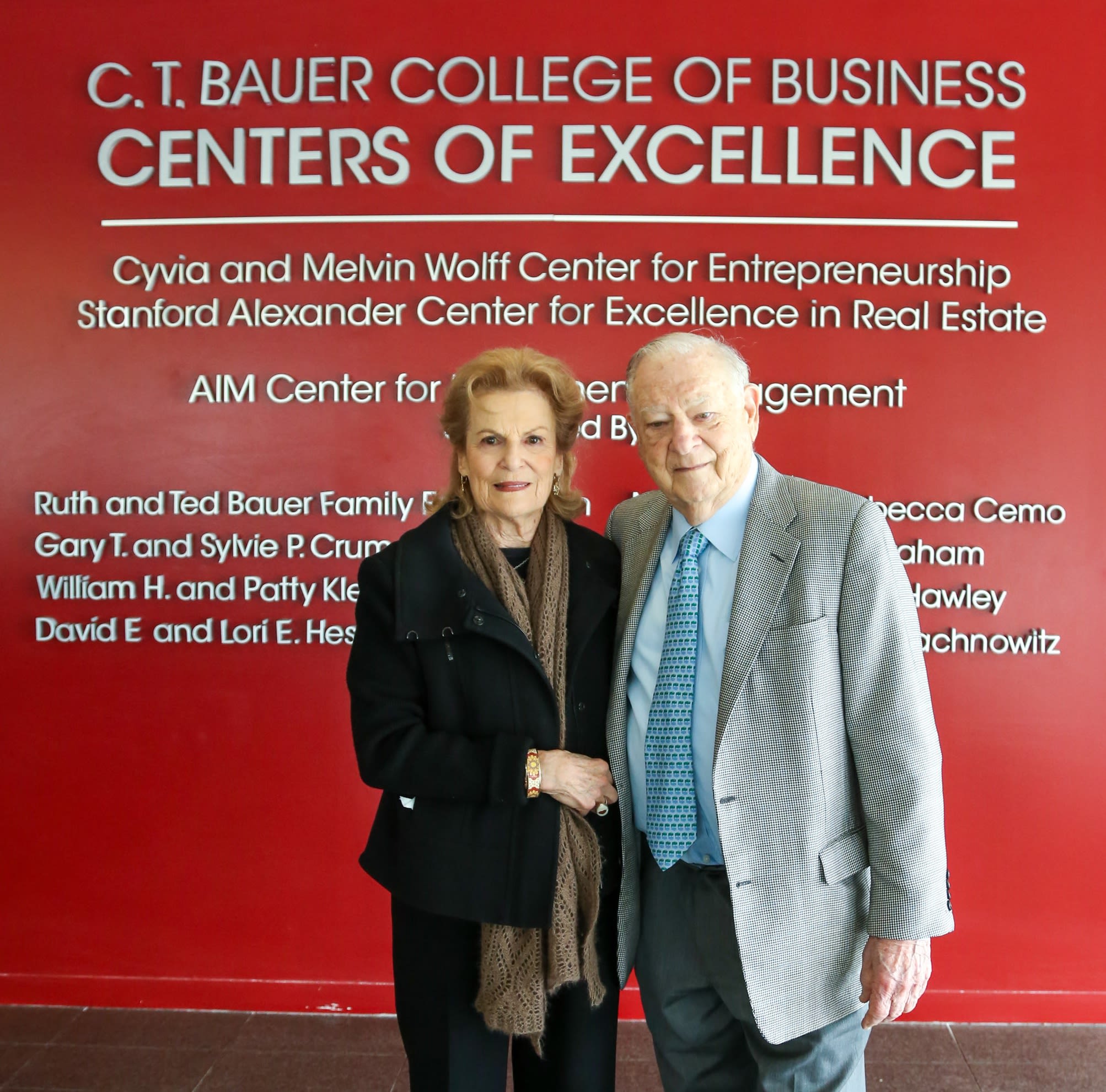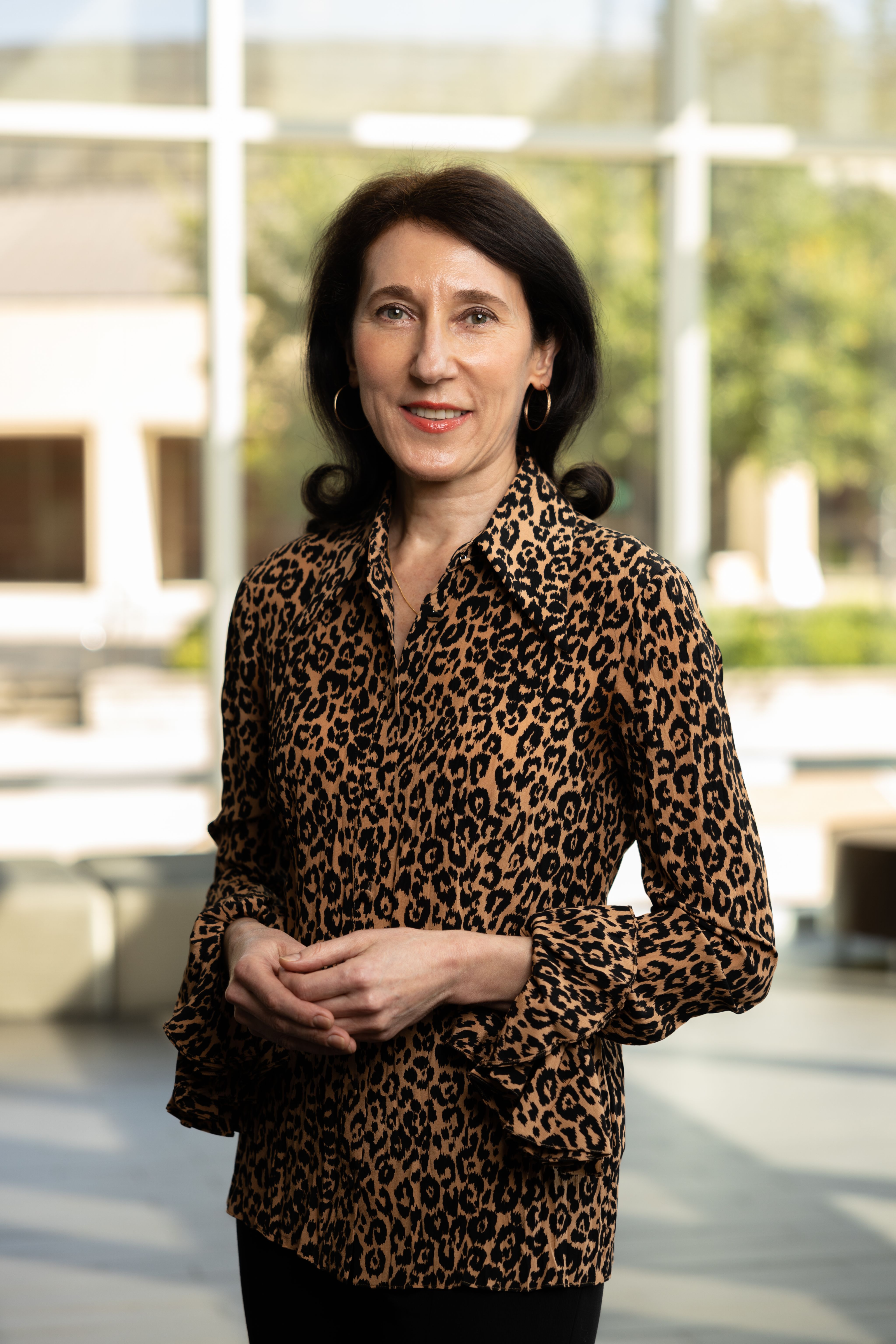10 Years!
Stanford Alexander Center for Real Estate Marks Its First Decade

When it came to choosing a career, University of Houston senior Kaleab Andy always knew which path he would take. “I’ve had a passion for real estate for as long as I could remember,” the 21-year-old said. “There is something special about its ability to impact a person’s experience. It was a no-brainer that this was what I was going to pursue.”
However, it took a non-real estate start at a different university plus the COVID-19 pandemic to bring him back to his hometown, where he found the springboard to his career.
“Fast forward to 2022, I learned about the Stanford Alexander Center at UH with its certificate in commercial real estate.” Andy is now in his fourth and final semester at UH’s C. T. Bauer College of Business as a finance major with eyes firmly fixed on becoming a commercial real estate developer, using skills learned at Bauer’s Stanford Alexander Center for Real Estate.
This year, the Center honors a landmark in its history. In 2012, a dozen hard-working graduate students earned the first certificates granted by the graduate real estate program, which had its start 18 months before. Just one year later, in 2013, the Center was founded in honor of Stanford J. Alexander and his legacy of excellence in business and his passion for serving the community.
The Alexanders were early believers and supporters of the Center’s mission, along with a stellar list of other industry legends. It is thanks to that early support that the Center has enjoyed such a successful first decade and laid the foundation for the future.
In those earliest days, the studies were designed only for students pursuing master’s degrees in business administration or finance. Now the Center serves undergraduate finance students and welcomes graduate students from other colleges, as well.

Just the Beginning: UH Senior Kaleab Andy looks forward to building a career in real estate development with the skills he acquired at the Stanford Alexander Center for real estate.
Just the Beginning: UH Senior Kaleab Andy looks forward to building a career in real estate development with the skills he acquired at the Stanford Alexander Center for real estate.

Loyal Friends: The C. T. Bauer College of Business honors Joan and Stanford Alexander for their years of loyalty and generous support of the real estate program.
Loyal Friends: The C. T. Bauer College of Business honors Joan and Stanford Alexander for their years of loyalty and generous support of the real estate program.
The Center recently received approval and is now taking applications for a new master’s degree in real estate, one of the few degrees offered nationally to focus entirely on real estate. This is an exciting next step for the Center as it continues to grow and expand its offerings to students.
Since its inception, a total of 255 eager professionals have earned real estate certificates – 38 in the 2022 academic year. Many have launched highly successful careers.
“We’re always proud to watch our students pick up their bachelor’s and master’s level certificates from the Stanford Alexander Center. But there is even more inspiration in seeing our students grow into leadership roles in the real estate community,” said Keith Richards, the Center’s executive director and, himself, a member of that very first class.
To build a respected reputation in the professional world, it is best to stand on a solid foundation from the very beginning, said Brian Cutrell, a former Air Force avionics engineer who came to the Center when he needed a change from his second career as a project professional in the petroleum industry.
“The main thing that makes the Stanford Alexander Center stand out is that the curriculum is practice-based. The adjunct professors are teaching us in the classroom what they are doing in their jobs each day, and they give students valuable insights based on their experience in the industry. Being able to learn from people like that gives students a huge advantage,” said Cutrell, who earned his real estate certificate and MBA in 2021, completed his master’s in finance the following year and is now director of investments at Flagship Capital Partners.

New Direction: Brian Cutrell came to the Stanford Alexander Center after service in the U.S. Air Force and a career in the petroleum industry. Real-world teaching from Stanford Alexander Center professionals helped him build a new career that blends past experiences with new skills.
New Direction: Brian Cutrell came to the Stanford Alexander Center after service in the U.S. Air Force and a career in the petroleum industry. Real-world teaching from Stanford Alexander Center professionals helped him build a new career that blends past experiences with new skills.
The Vision

The Stanford Alexander Center has always looked beyond the classroom to focus on the people skills and best practices necessary to succeed in its competitive industry. In that approach, it stands out among the 70 advanced-level real estate programs across the country.
From the beginning, the mission of the program – and the vision of its namesake, Houston commercial real estate giant Stanford J. Alexander – has inspired the Center to reach further than theoretical studies to embrace a practice-based style of instruction.
“The vibrant real estate market in Houston makes this the ideal place for advanced studies in real estate. Our students witness the process up close, and they experience working amid the energy that flows from the city’s never-ending growth. There could be no better location for the Stanford Alexander Center than Houston,” said Paul A. Pavlou, dean of Bauer College.
The goal has always been to certify job-ready students who have the confidence in the skills, knowledge and practical experience they will need to thrive in the profession. The curriculum stresses professional partnerships, hands-on mastery of real-life projects through field-based assignments and – especially – networking among Houston real estate professionals.
“The Stanford Alexander Center is yet another example of UH’s commitment to both our University community and the community where we live.”
“The Stanford Alexander Center is yet another example of UH’s commitment to both our University community and the community where we live,” said Diane Z. Chase, senior vice president for academic affairs and provost. “Preparing students for careers in the robust real estate industry is one of the ways the University of Houston contributes to the future of our city, and we’re proud to host this important center named for a true icon in real estate.”
Internships, career counseling and job guidance from the professionals at the Center help students and graduates explore opportunities in the fast-changing field that, as Richards pointed out, is fueled by networking and knowledge of the local market.
“Theory is important, and we teach that side of the profession. But theory presents a challenge: It tends to take a general look at broad subject areas. But in the real estate world, most information is local, even ‘hyper-local.’ To succeed in this business, you must know the particulars of your area,” Richards stressed.
So, the truth in that old real estate adage – location, location, location – also applies to learning about the real estate business. “Real estate is a people business. Knowing the local market is critical,” he said.
Having put down meaningful roots in the city during their studies, most Stanford Alexander Center students choose to make their career here in Houston. Several have become adjunct professors, often for the Center’s busy roster of night classes. And that’s keeping things perfectly local.
“I love the diversity of Houston. There are people from all over the world living here, and we have access to food, entertainment and culture from a wide variety of sources. UH represents the city well in this regard, with a diverse mix of students. With the huge alumni network in Houston, UH seemed like the ideal place for me to complete my graduate studies and make my career,” said Cutrell.
Across the US, more than 7 million people work in jobs directly identified with real estate – including title insurance, construction, mortgage banking, property management appraisals, development, and brokerage and leasing. A few other careers not classified within the real estate sector – real estate lending and insurance, for example – are closely related and are also important facets of the industry.


Starting Over: When Tanya Hoogeveen’s world turned upside down, she changed direction. The Stanford Alexander Center was her inspiration on the new path. Her advice for others? Keep an open mind about what’s ahead, and remember your goals. More than anything, don’t give up.
Starting Over: When Tanya Hoogeveen’s world turned upside down, she changed direction. The Stanford Alexander Center was her inspiration on the new path. Her advice for others? Keep an open mind about what’s ahead, and remember your goals. More than anything, don’t give up.
Because the Stanford Alexander Center curriculum covers a wide field, former students find many career doors open. Some are active in property development, investments, appraisals and property management. Others thrive in mortgage and title companies, law firms, real estate teams within corporations and, of course, commercial real estate brokerages.
ExxonMobil is the largest employer of Stanford Alexander certificate holders, along with other energy firms and a host of regional, national and global firms, such as Midway and JLL.
“My advice is to keep an open mind about the road ahead. It’s OK to not be 100% clear, but always remember your goals,” said former student Tanya Hoogeveen, who returned to college studies after a major life change.
“My personal challenge was to start all over again after becoming a widow. That needed to include a new career, so I went back to school for my MBA and studies in commercial real estate,” she said. After starting with a position in commercial appraisals, she has now moved into finance.
Her advice after her own job hunt? Don’t give up, she said: “Keep knocking on doors. The most important thing is to look for a job and company that will make you happy. It’s important to do what you love doing. In the end, everything has worked out beautifully.”
Looking to the Future

For an upcoming initiative, the Center is reaching out to another part of the UH family. The Stanford Alexander Center is partnering with the Gerald D. Hines College of Architecture and Design to establish a graduate-level certificate of real estate development, open to students enrolled in either college.
“It’s a matter of knowing what comes next. It’s great for our students to have a solid footing in the art and science of designing and building. But will those visions synch with what drives the real estate market? The reverse would be true, too: How can real estate professionals spot wise investments without understanding behind-the-scenes fundamentals of architecture? This cooperation will complement both schools,” Richards said.
Perhaps the biggest news is the creation of the Stanford Alexander Endowed Chair in Real Estate (the first ASPIRE Chair in the C. T. Bauer College of Business) and the Stanford Alexander Endowed Research Fund, both generously funded by the family of Stanford Alexander to honor and mark what would have been Stanford’s 95th birthday.
A nationwide faculty search will recruit a prominent real estate researcher, and the Center will launch its first real estate research effort as part of Aspire’s Institute for Resilient Infrastructure and Smart Cities. This will help the Stanford Alexander Center for Real Estate attain a national top 10 ranking for both its graduate and undergraduate programs and will increase the focus on research that resolves the issues we face in Houston. It will also solidify the Center as both a local and national hub of thought leadership.
“I can think of no better way to recognize Stanford’s hard work and contribution to the real estate industry and the city of Houston than to ensure the Center that bears his name is able to attract the best and brightest students to lead Houston into the future.”
“I can think of no better way to recognize Stanford’s hard work and contribution to the real estate industry and the city of Houston than to ensure the Center that bears his name can attract the best and brightest students to lead Houston into the future. Stanford always had a special gift for envisioning what’s needed and possible and understood how to turn that vision into reality. The Real Estate Center at the University of Houston is a perfect example of this,” said Joan Alexander.
In other recent giving, $1 million in scholarships was donated by the Wayne Duddlesten Foundation. John Hammond, chief executive officer of Riverway Title, presented a full-ride scholarship for the graduate program. And a $1 million matching fund was announced for research or experiential learning.
Principles and Practice

At Bauer College, the concept of creating great cities is entwined with instilling students with Stanford Alexander’s business values, which were of the highest level of professional expertise and personal integrity.
In 1962, when Stanford became Weingarten Realty Investors’ president and chairman, REITs (real estate investment trusts – companies that own or invest in real estate) had existed only a short time. As the concept evolved over the years, more investors were taking notice and their buy-in began to fund commercial real estate growth nationwide.
Weingarten Realty, with shopping centers across the country, was restructured as a REIT in 1984 under Alexander’s leadership. Eventually, it became one of the largest REITs on the New York Stock Exchange, and Stanford earned wide respect on Wall Street.
In those early days, he may not have anticipated that his intuition for recognizing properties’ unrealized commercial value would be the foundation of his life’s work and mark his place in history. In the business and investment worlds, Stanford Alexander has been revered as a national pioneer in the development of the shopping-center concept and the REIT business model. Alexander was a legend in Houston real estate. Many count him among the forward thinkers who changed the city from a regional center to one of the country’s major metropolitan areas. But then and now, many Houstonians also respect him for very different traits – his acts of kindness and his curiosity about lives of people he encountered.
His son and former president and CEO of Weingarten Realty Investors Drew Alexander commented, “Stanford was raised with a tradition of philanthropy and giving back to the community which he and my mom continued in their 68 years together. Supporting real estate education through the University of Houston is an excellent way to give back and honor my father's legacy of incredible leadership, vision, mentorship, creativity, entrepreneurial skills and commitment to provide opportunities for others. Our family is very proud his name is a permanent part of the University of Houston.”
